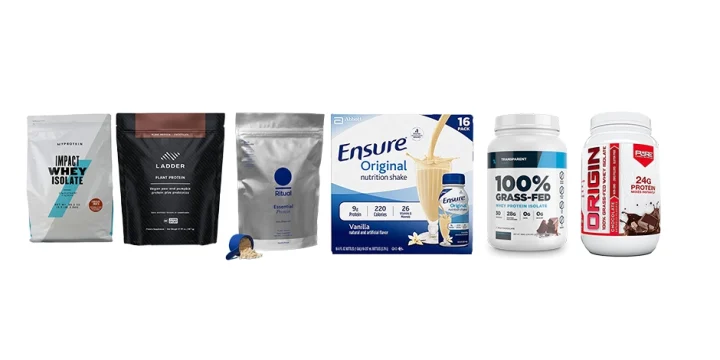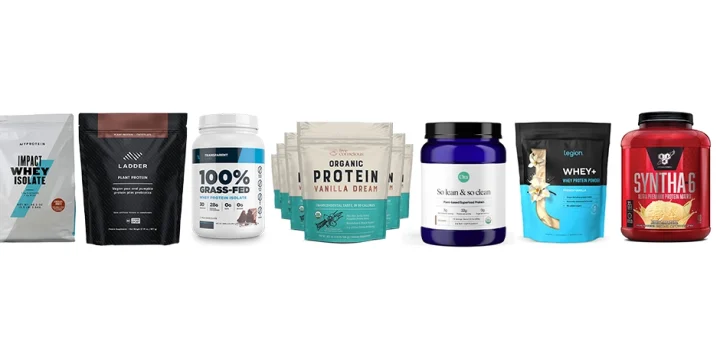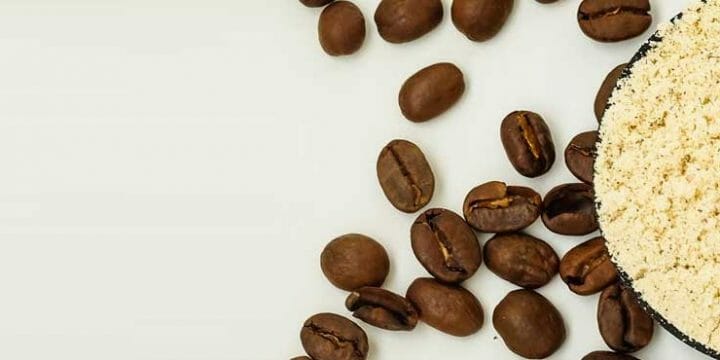One of my patients recently inquired about the safety of protein powder for children. This question prompted thorough consideration.
Protein powder offers a valuable protein supplement for the body. I conducted extensive research and sought counsel from leading nutrition experts in the field.
As we are well aware, children require a daily intake of proteins, which plays a vital role in their daily growth. This is precisely why nutritionists often advocate protein consumption for children.
Nevertheless, it's crucial to exercise moderation when it comes to protein intake. By the conclusion of this discourse, I will determine whether protein powder is genuinely safe for children or not.
Quick Summary
- Protein powder is safe for kids, provided the nutrition guidelines are not exceeded.
- It covers the role of protein in kids' development, daily protein needs, and specific cases like picky eaters or underweight children where supplements might be necessary.
- According to the National Institute of Diabetes and Digestive and Kidney Diseases, appropriate protein intake is crucial for children's growth but excessive amounts can lead to health risks later in life.
- In my opinion, while protein supplements can be useful, focusing on a balanced diet with natural protein sources is generally the best approach for children's nutrition.
Why Is Protein Important For Kids?

Protein is important for kids because it plays a key role in the development of many different body functions and systems.
Practically every new cell that is created during various growth stages requires protein.
More on the recommended amounts shortly.
Once absorbed, protein is broken down into amino acids, which are vital ingredients in DNA replication, hormone development, muscle tissue, bone density, and healthy organs, including the brain.
While a lack of protein in kids' diets is rare these days, you can see how it could be a serious issue.
And because a child's body develops so much quicker than adults, healthy protein intake must be maintained.
Daily Protein Needs For Different Ages
Based on our first-hand experience, having an adequate protein intake from newborn babies right into teenage years and adulthood is something that parents have to pay close attention to.
When we trialed this product, we found that Little Spoon has created a wide range of tasty meals for toddlers and kids, packed with all the ingredients parents love.
From barbeque chicken to broccoli bites, this all-natural company claims balanced nutrition, without preservatives, artificial sugar, and other junk.
Making sure your kids consume all the protein they need can be an absolute headache, so these fresh meals make life much easier - especially when they’re delivered straight to your door.
According to insights from the Office of Disease Prevention and Health Promotion, the following table shows you the recommended amounts of protein, based on the US Government dietary guidelines [1].
| Child age 1-3 |
Female age 4-8 |
Male age 4-8 |
Female age 9-13 |
Male age 9-13 |
Female age 14-18 |
Male age 14-18 |
|
| Calories | 1,000 | 1,200 | 1,400 | 1,600 | 1,800 | 1,800 | 2,200 |
| Protein | 13 | 19 | 19 | 34 | 34 | 46 | 52 |
For the most part, children will be able to achieve these goals from the foods they eat, especially from dairy products like cheese and milk, as well as meat and some plant-based protein.
But there are some situations where children could become deficient.
Is Protein Powder Safe For Your Kids?

Our investigation demonstrated that protein powder is safe for kids as long as nutrition guidelines are not exceeded.
However, it is possible that your child may have dietary allergies and intolerances that may make milk-based protein powder products unsuitable.
If you are considering supplementing your child's diet because maybe they aren't eating enough protein-rich foods, then it's always best to start with very small doses and the best protein for kids. This will allow you to monitor any reactions and negative health effects.

How Can Kids Increase Protein In Their Diet?
According to a study published by the National Institute of Diabetes and Digestive and Kidney Diseases (NIDDK), children need protein for growth but should avoid excessive amounts; once the recommended protein intake is achieved in children and adolescents aged 4 to 18, increased intake could promote proper development but may also lead to increased risk of diseases later in life [2].
Per a study published by the National Institute of Environmental Health Sciences (NIEHS), the body can use protein as fuel for movement and growth. Hence, it is important to ensure that children get enough protein from their diet. Here are some protein-rich foods that you can incorporate into your child's diet [3]:
- Dairy products: milk, yogurt, cheese
- Meat: pork, beef, chicken, turkey, duck
- Beans, lentils, peas
- Nuts and nut spreads: almond butter, peanut butter, soy nut butter
- Soy foods: soy milk, tofu
- Eggs
- Fish
- Oatmeal
- Pasta, noodles, rice
"Remember to stick with healthy choices as you look for protein-rich foods. The foods should be low in saturated fat, trans fat, cholesterol, salt, and added sugars."
- Vincent Ianelli, Pediatrician
When Should You Consider Using Protein Powders For Children?

You should consider using protein powders for teens if there is a significant reason to believe that there may be a risk of protein deficiency. This can mainly happen due to the following reasons.
1 - Picky Eaters
This is the most common situation that parents may face where children are very picky about the food they eat. This can make it very difficult to get extra protein through foods alone.
2 - Vegan or Vegetarian
Animal products like milk and meat are naturally rich in protein, and children will easily get their protein needs sourced from them on a day-to-day basis. Vegan or vegetarian kids will need some more careful attention to what plants they eat to avoid malnutrition.
3 - Underweight
While not enough calories from foods is the main cause of being underweight, some children may simply not be developing fast enough because they aren't getting enough protein. However, this should be confirmed with a pediatrician.
When Should You Not Consider Taking Protein Powders?

You should not consider using protein powders if your child has any known underlying health conditions.
While the right levels of nutrients are important for various stages of development, many supplement products may pose some risks if there are any known illnesses.
It's also not recommended to supplement with protein products if this were to result in the total calories per day increasing above the amount recommended for a child's developmental stage [4].
What Age Can A Child Have Protein Shakes?
There is no specific recommended age when a child can have protein shakes, but based on daily intake needs, you may want to avoid supplements before the age of 8.
The reason for this is that the relatively limited amount of protein needed per day can be easily achieved through food.
From age 8 onwards, the need for protein and other nutrients goes up quite a bit, which is where some supplements may become a suitable option.
Related: Should You Take Protein Shakes Before or After a Workout?
FAQ
Is protein powder safe for teenagers?
Yes, protein powder is safe for teenagers as long as they don't significantly exceed their intake needs. Ideally, this should be calculated with the help of a nutritionist and support the levels of activity as well.
Why does protein powder hurt my stomach?
The main reason that protein powder may hurt your stomach is due to lactose intolerance. Most protein products are made from dairy ingredients, and a lot of people are not able to properly digest these resulting in cramps and nausea. A simple solution is to switch to plant-based protein powder.
- https://health.gov/our-work/nutrition-physical-activity/dietary-guidelines/previous-dietary-guidelines/2015
- https://www.niddk.nih.gov/health-information/kidney-disease/children/helping-child-adapt-life-chronic-kidney-disease/nutrition-chronic-kidney-disease?
- https://kids.niehs.nih.gov/topics/healthy-living/food/food-labels
- https://health.gov/our-work/nutrition-physical-activity/dietary-guidelines/previous-dietary-guidelines/2015
About The Author
You May Also Like






